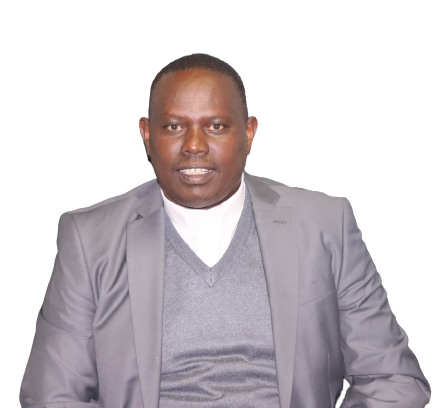AMECEA: Catholic Church Promotes Ownership of Property: AMECEA’s Official at a Workshop Advocating For Women’s Land Rights

Fr. Paul Igweta
Sr. Jecinter Antoinette Okoth, FSSA
Property ownership according to the Catholic Social Teaching, “is required as an aspect of the principles of human dignity, autonomy and freedom,” the Coordinator for the department of Promoting Integral Human Development (PIHD) at the Association of Member Episcopal Conferences in Eastern Africa (AMECEA) has shared with participants at a workshop advocating for women’s land and gender rights in the society.
Addressing about 50 participants from government and civil societies across Africa, Fr. Paul Mung’athia Igweta highlighted that ownership of property and other forms of private ownership of external goods, “contribute to the expression of the personality… and furnishes one an occasion to exercise his function in society and in the economy.”
Thus, the cleric narrated further on Monday, July 24, during the five day-workshop held in Kampala, Uganda, “Private property or some ownership of external goods confers on everyone a sphere wholly necessary for the autonomy of the person and the family and it should be regarded as an extension of human freedom.”
The workshop themed ‘Learning and Consultative Workshop for Catholic Actors in East Africa to Support Advocacy for Women’s Land Rights’ comprised of participants from across the continent including civil societies such as AMECEA, Symposium of Episcopal Conferences in Africa and Madagascar (SECAM), International Cooperation for Development and Solidarity (CIDSE), Uganda Episcopal Conference (UEC), Advocacy Coalition for Sustainable Agriculture (ACSA), Rural Women’s Assembly, Eastern and Southern Africa Small Scale Farmers Forum (ESAFF), Tanzania Natural Resource Forum and Landesa Rural Development Institute.
Speaking about Sustainable Development Goal (SGD) number five on gender equality, the Kenyan cleric affirm that this is a fundamental goal that helps in the achievement of human rights and at the same time “is an aspiration that benefits all of society including girls and women.”
According to Fr. Igweta, gender-based discrimination especially against women and girls which is deeply rooted in the fabric of societies, is prohibited under almost every human rights treaty and “Despite much progress made in securing women’s rights globally, millions of women and girls continue to experience discrimination and violence, being denied of their equality, dignity and autonomy, and even a life.”
Aware that women and girls are increasingly raising voices to demand equality, “promoting women’s human rights and achieving gender equality are core commitments of the UN Human Rights Office,” the AMECEA’s PIHD coordinator said during the workshop adding that, “We promote women and girls’ equal enjoyment of all human rights, including freedom from violence, sexual and reproductive rights, access to justice, socio-economic equality, and participation in decision-making.”
Promoting women’s human rights Fr. Igweta said, can be realized by “monitoring and advocating for building capacity of stakeholders, and providing technical advice.”
He said further, “Women’s equal rights to land and property are grounded in the core human rights instruments such as: the Universal Declaration on Human Rights; the International Covenant on Economic, Social and Cultural Rights; the International Covenant on Civil and Political Rights; and the Convention for the Elimination of All Forms of Discrimination Against Women.”
Besides, the global goals set by the 2030 Agenda for Sustainable Development recognize women’s land rights as an explicit cross-cutting catalyst to ending poverty, seeking to achieve food security and improved nutrition and achieving gender equality and women’s Empowerment.”


